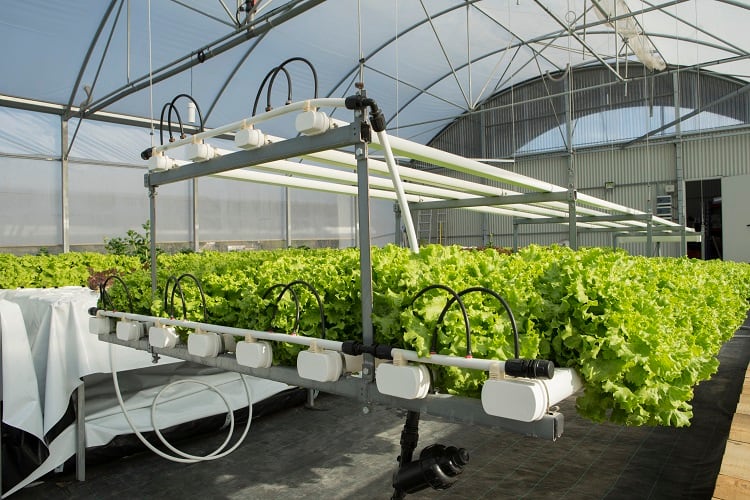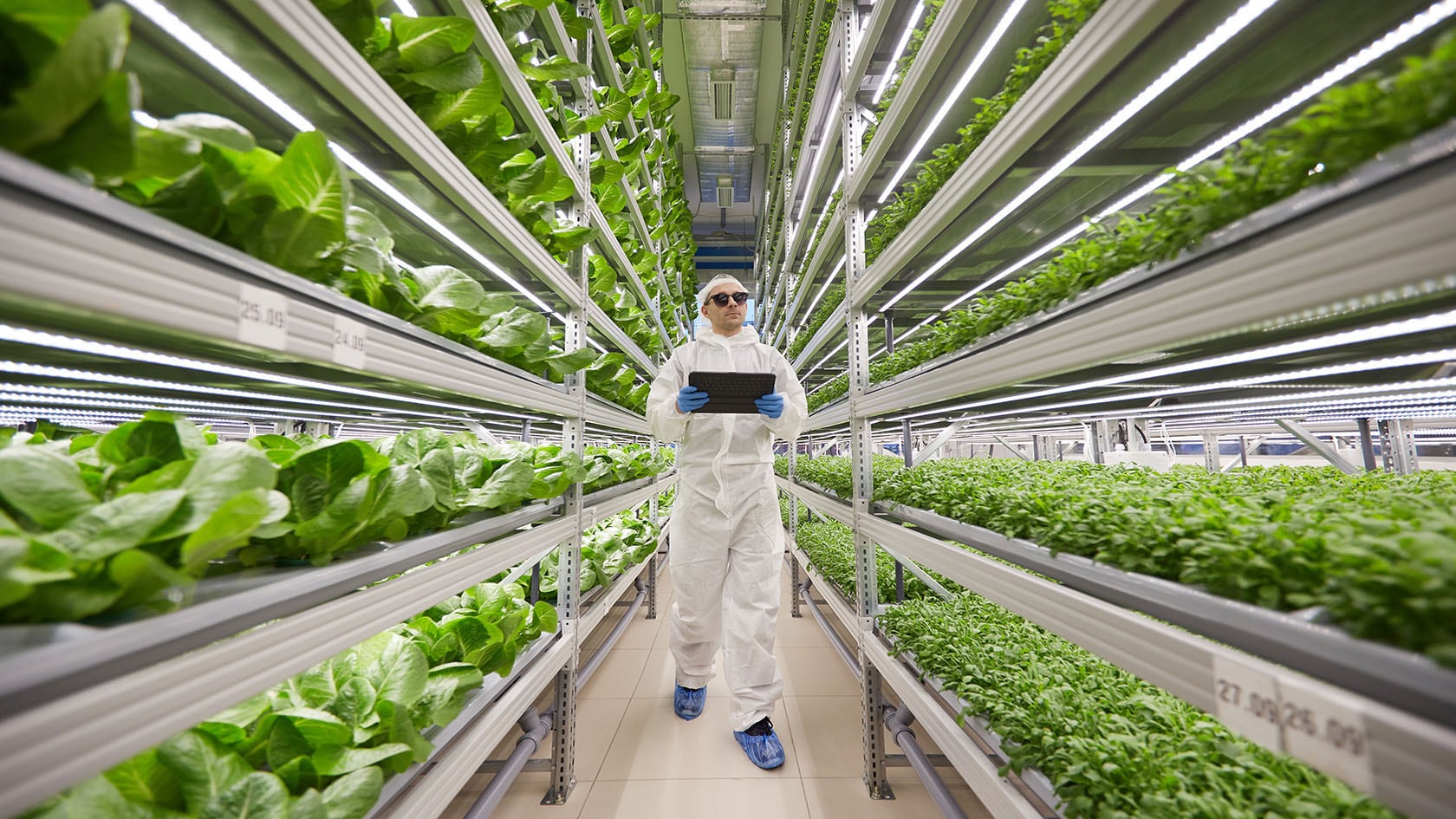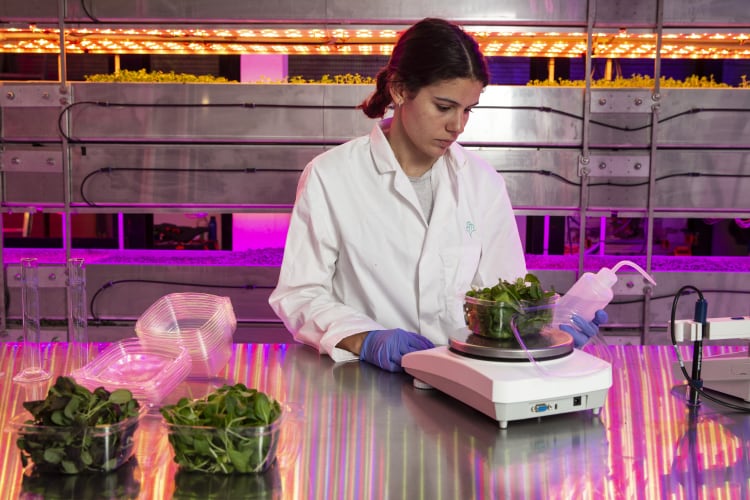The EIT Food-backed PERsonalised Nutrition though kitchen Gardens (PERNUG) project aims to develop hydroponic systems to grow a range of food plants in a domestic setting.
EIT Food is supported by the European Institute of Innovation and Technology (EIT), part of the European Union. The project brings together the skills and expertise of Studio Kapp, which has developed kitchen gardens and Internet of Things food solutions, The Quadram Institute, a centre for food and health research, and KU Leuven, which offers experience in consumer studies, co-creating solutions and the development of consumer interfaces and apps.
The ambition is to create a commercial product within two years.
“PERNUG will deliver a commercial product by 2023, with 2022 being a pilot year. The pilot will test solutions with key players from across the food supply chain and aims to make sustainable hydroponic produce widely accessible and affordable,” Lauri Kapp, founder of Studio Kapp, told FoodNavigator.
“Rising consumer awareness of the inherent links between food, health and the environment are driving demand for more personalised and sustainable food choices. Yet, the values, focus and methods of the present food system are not aligned to help consumers achieve their individual health goals or to reduce their environmental footprint,” Kapp observed.
Pilot studies are already putting prototype kitchen gardens into households. Consumer feedback will be used to design the final product.
“Next year we will conduct a proof of concept study to test the efficacy of the system, i.e. can we improve the nutritional status of users of the system,” Kapp added.
Produce for personalised nutrition
The project will link consumers to the latest scientifically validated data on nutrition and health, enabling them to select from a range of different crops and varieties linked to their own personalised nutritional needs.
Consumer health information will be collected though an app that will also provide recipe suggestions.
“We are currently developing a consumer interface (an app) that allows users to input their data and receive recipe recommendations,” Dr Paul Kroon from the Quadram Institute told this publication.
“The app will use the user-inputted data combined with data on food composition, bioavailability and how to maximise nutrients of interest to provide recipe recommendations, with the kitchen garden providing a fresh and convenient source of plants biofortified with the nutrients of choice. There will also be the possibility of including other user-inputted data such as personal taste or proximity preferences, for example ‘based on liking this recipe here is another one you might like’.”
The team will develop recipes that use produce grown in the kitchen garden to deliver the RDA of various nutrients. PERNUG believes it will deliver a ‘consumer-focused solution’ to the ‘widespread and growing problem’ of micronutrient deficiency.
The researchers are initially focusing on iron and vitamin B12.
In almost every EU country, over half of women of childbearing age don’t eat the recommended intake of iron, studies suggest. Meanwhile vitamin B12 is a micronutrient that is usually provided for in the diet by meat, with plants unable to make it. The growing popularity of vegetarian and vegan diets is expected to increase the number of people deficient in vitamin B12, the researchers noted.
“Our current focus in the trials is on two micronutrients (iron and vitamin B12) where we know significant numbers of people are at risk of being deficient based on demographic data. In future we can expand this, including, for example, providing recommendations based on the individual nutritional needs defined by at-home testing kits,” Dr Kroon explained.
By testing and selecting different varieties of edible plants and experimenting on how adding nutrients to the growing media can biofortify the crops, the finished system will provide a choice of crops that contain high levels of nutrients.
“We are confident we can achieve significant increases in the intakes of iron and vitamin B12 if consumers use the system in the way it was designed to be used. Plants don’t make B12 and so the B12 biofortified plants grown in these units will be unique. Our R&D to date suggests we can achieve the Recommended Daily Amount (RDA) for vitamin B12 intake from the kitchen gardens.
“For iron, the key will be to use a combination of hydroponics with biofortification and provision of recipes that use plant foods that are rich in iron and importantly bioavailable iron (i.e. a relatively high fraction of the ingested iron is absorbed and contributes to body iron stores). The next stage of the project is to test the system through a pilot study where participants will use the system for a period of time and we will assess their nutritional status before and after they have used it.”
Sustainable nutrition through vertical farms
The project contributors describe vertical farming as ‘one of the solutions to making agriculture more sustainable’, whilst supplying produce year-round to satisfy consumer demand.
Crops are cultivated without soil in a controlled, optimised environment, without the need for pesticides. They efficiently reuse resources, reducing wastage, EIT Food noted. Vertical farms have been shown to use 90% less water and deliver much higher yields per square metre of land.
One question often raised over the environmental credentials of vertical farms relates to their energy use, because they rely on LED lighting.
Dr Kroon said that while a life cycle analysis has not been completed on the PERNUG system, it is likely that energy use will be similar to that of other kitchen appliances. “The kitchen garden uses a standard domestic electrical power supply. Electricity usage is likely to be similar to other domestic white goods units. We have not done a full lifecycle analysis but the shift in electricity production towards renewables is nicely aligned with the marketing of these kitchen gardens,” he told us.
Currently, around 20% of energy used in the EU comes from renewable sources and targets have been put in place to increase this further.
Bringing production into the domestic setting offers a number of other green gains, the researchers contended. It eliminates the supply chain needed to bring fresh produce to the home, cutting the impact of transportation and addressing food waste during transit.
Cutting food miles also maximises the nutrient levels in produce, addressing the issue of post-harvest nutrient loss.
“Kitchen gardens have a range of consumer and environmental benefits compared to those obtained via conventional supply chains. But they also offer a great opportunity to deliver personalised nutrition, and in the PERNUG project we are developing kitchen gardens that grow more nutrient-rich plants and allowing users to select from carefully designed and delicious recipes that deliver the types and amounts of nutrients such as minerals and vitamins they need,” Dr Kroon concluded.
As well as the home kitchen, the PERNUG kitchen garden will be suitable for installation in workplaces, schools and other institutions, the researchers noted.




